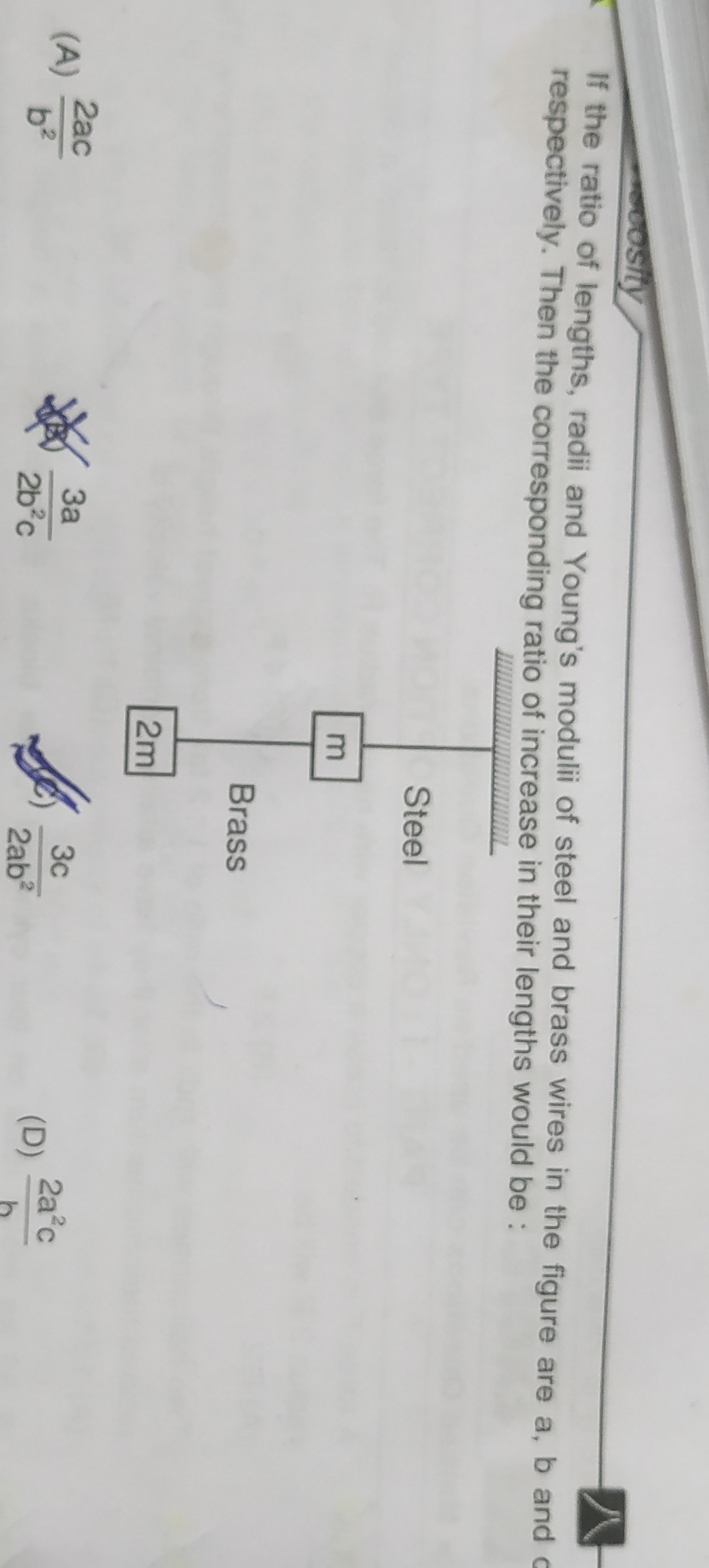Question
Question: If the ratio of lengths, radii and Young's modulii of steel and brass wires in the figure are a, b a...
If the ratio of lengths, radii and Young's modulii of steel and brass wires in the figure are a, b and c respectively. Then the corresponding ratio of increase in their lengths would be :

b22ac
2b2c3a
2ab23c
b2a2c
2b2c3a
Solution
To determine the ratio of the increase in lengths of the steel and brass wires, we first need to identify the forces (tensions) acting on each wire, and then use the formula for elongation due to Young's modulus.
1. Analyze the forces (tensions) in the wires:
-
Steel wire: The steel wire is attached to the ceiling and supports both the mass 'm' and the mass '2m'. Therefore, the tension in the steel wire (Fs) is the total weight supported: Fs=(m+2m)g=3mg
-
Brass wire: The brass wire is attached to the mass 'm' and supports only the mass '2m'. Therefore, the tension in the brass wire (Fb) is the weight of the mass it supports: Fb=2mg
2. State the formula for elongation:
Young's modulus (Y) is defined as the ratio of stress to strain: Y=StrainStress=ΔL/LF/A Where:
- F is the applied force (tension)
- A is the cross-sectional area of the wire (A=πr2)
- L is the original length of the wire
- ΔL is the increase in length (elongation)
From this formula, the increase in length can be expressed as: ΔL=AYFL
3. Express the ratio of elongations:
The question asks for "the corresponding ratio of increase in their lengths" for "steel and brass wires". This implies the ratio ΔLbΔLs.
ΔLbΔLs=AbYbFbLbAsYsFsLs Rearranging the terms: ΔLbΔLs=FbFs×LbLs×AsAb×YsYb
4. Substitute the given ratios and derived tension ratio:
-
Tension ratio: FbFs=2mg3mg=23
-
Ratio of lengths: Given as a. So, LbLs=a.
-
Ratio of radii: Given as b. So, rbrs=b. Since A=πr2, the ratio of areas is AbAs=πrb2πrs2=(rbrs)2=b2. Therefore, AsAb=b21.
-
Ratio of Young's modulii: Given as c. So, YbYs=c. Therefore, YsYb=c1.
Now, substitute these ratios into the elongation ratio equation: ΔLbΔLs=(23)×(a)×(b21)×(c1) ΔLbΔLs=2b2c3a
Comparing this result with the given options, it matches option (B).
The final answer is 2b2c3a.
